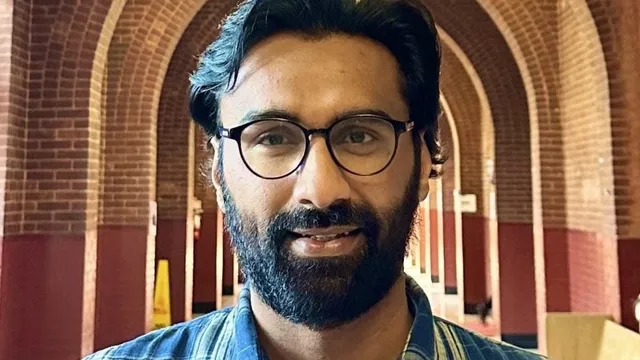
Georgetown researcher arrested for alleged Hamas support
2025-03-24 10:40- Badar Khan Suri, a postdoctoral associate at Georgetown University, was arrested by ICE agents over allegations related to Hamas propaganda.
- Georgetown University confirms Suri was conducting research on peacebuilding in conflict areas and is unaware of any illegal activities.
- The case reflects ongoing tensions regarding deportation policies and free speech rights associated with pro-Palestinian movements.
Express your sentiment!
Insights
In the United States, recent actions have turned a spotlight on immigration policies and free speech. Badar Khan Suri, an Indian national and postdoctoral associate at Georgetown University, was detained by federal immigration authorities on allegations of disseminating propaganda for Hamas, a group designated as a terrorist organization by the U.S. government. These events unfolded at Suri's residence in Rosslyn, Virginia, as he faced deportation initiated by the Department of Homeland Security. Reports indicated that Suri is connected to a known or suspected terrorist affiliated with Hamas, further complicating his legal status. Suri, who was previously engaged in doctoral research on peacebuilding in Iraq and Afghanistan, was on a student visa when he was arrested. Georgetown University has stated its commitment to free inquiry, asserting that it was unaware of any illegal activity by Suri. The university supports his right to express controversial ideas, aligning with ongoing debates about academic freedom. This incident is part of broader trends in the Trump administration's efforts to deport individuals linked to pro-Palestinian activism. Critics argue that these operations unfairly target dissenters and may infringe on their First Amendment rights, with cases like Suri's sparking significant public discourse about the intersection of immigration enforcement and political expression. The situation has drawn attention to the implications of national security measures on academic research and civil liberties, especially against the backdrop of heightened tensions surrounding Israeli-Palestinian relations. Moreover, this context raises questions about the motivations behind such arrests and the impact on scholars engaged in sensitive political discourse. As scrutiny grows, advocates for free speech in academia are rallying to support individuals like Suri, who face the consequences of a climate that increasingly challenges dissenting views.
Contexts
The impact of political dissent on academic freedom is a critical issue that has gained increasing attention in recent years. Political dissent refers to the act of expressing disagreement or opposition to established political norms and policies, which can sometimes lead to restrictions on academic freedom, particularly in environments where governments seek to control or influence intellectual discourse. Academic freedom is the principle that allows scholars to pursue knowledge, research, and teaching without undue interference or restrictions from external entities, particularly the government. When political dissent is stifled, it often creates a culture of fear and self-censorship among academics, leading to a chilling effect on research and open discourse that are vital for the advancement of knowledge and society as a whole. In many educational institutions, especially in authoritarian regimes or politically charged environments, faculty and students who express dissenting views may face repercussions, including job termination, loss of funding, or even imprisonment. Such actions not only threaten individuals but also undermine the integrity of academic institutions. This environment can hinder critical inquiry and limit the diversity of perspectives that are essential for a robust academic dialogue. Moreover, when dissenting voices are silenced, the academic community risks producing a homogenous body of knowledge that fails to address critical social issues or innovate solutions to pressing problems, thus perpetuating societal injustices and hindering progress. The relationship between political dissent and academic freedom is further complicated by the role of technology and social media in contemporary society. While these platforms provide new avenues for expression and mobilization, they also expose dissenters to greater scrutiny and retaliation from state and non-state actors. Universities and research institutions must navigate this complex landscape, balancing the need for open inquiry with the safety and well-being of their scholars. Furthermore, the pressure to conform to dominant political ideologies can create an environment where only certain topics are deemed acceptable for research and discourse, thereby stifling critical thought and limiting the scope of academic freedom. To mitigate the adverse effects of political dissent on academic freedom, it is essential for educational institutions to adopt policies that promote an inclusive environment where diverse perspectives can be safely expressed and debated. Academic institutions should advocate for the protection of their members' rights to dissent, while also fostering resilience and solidarity among scholars facing external pressures. In doing so, they can uphold the critical role of academic freedom as a cornerstone of democracy and intellectual integrity, ensuring that academia remains a vibrant space for critical thinking and the advancement of knowledge.